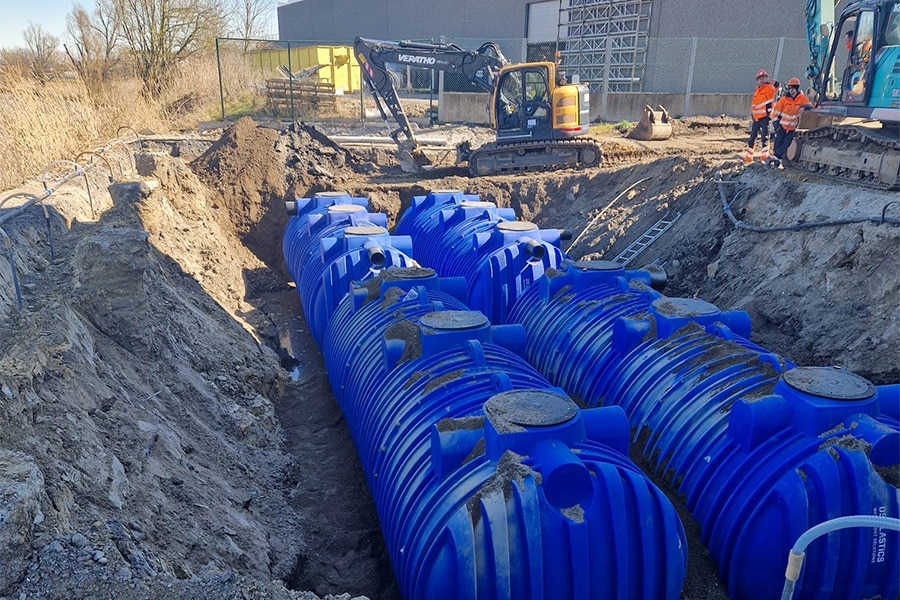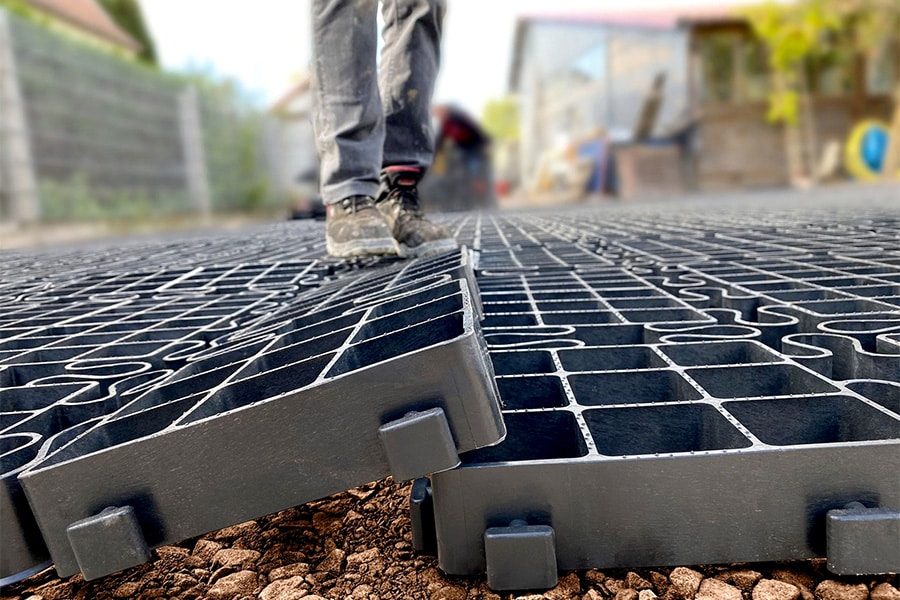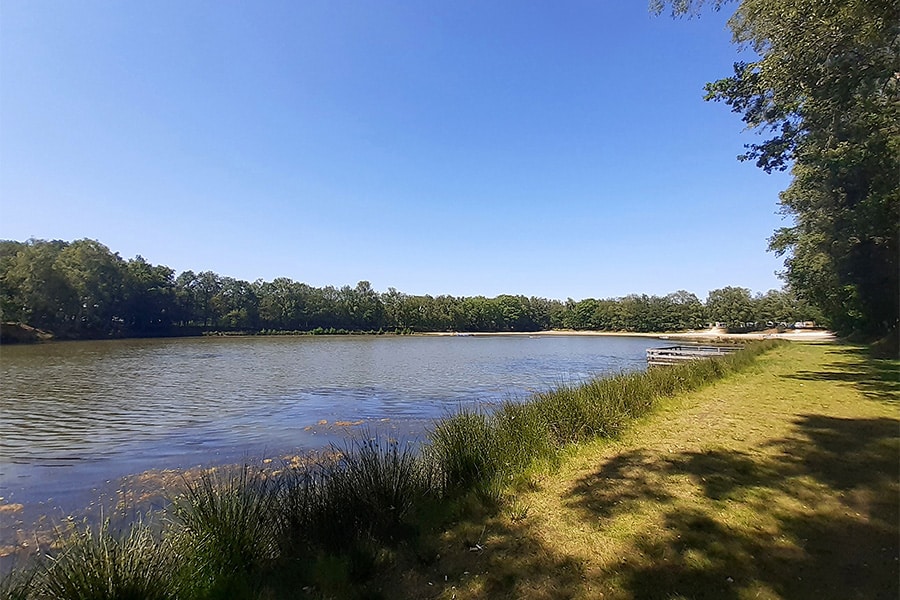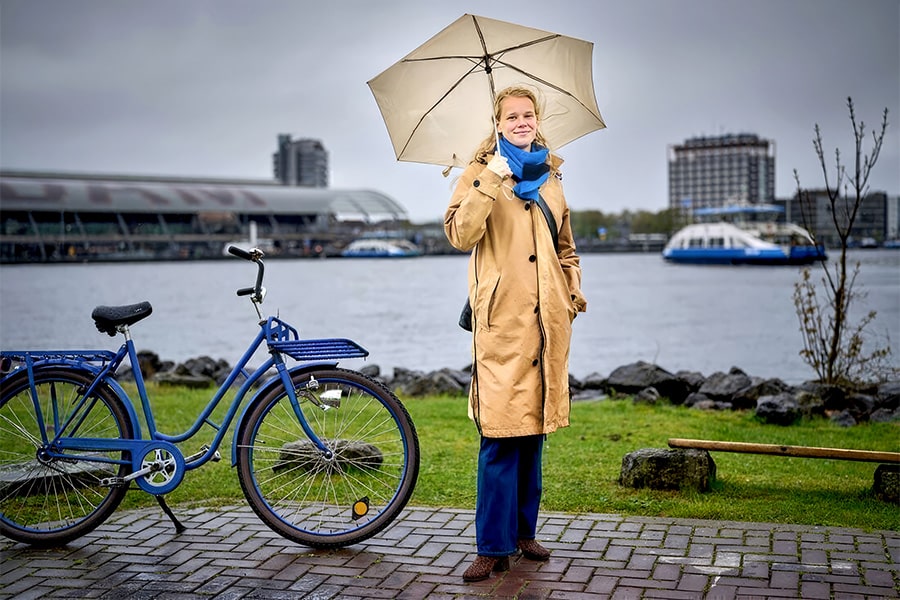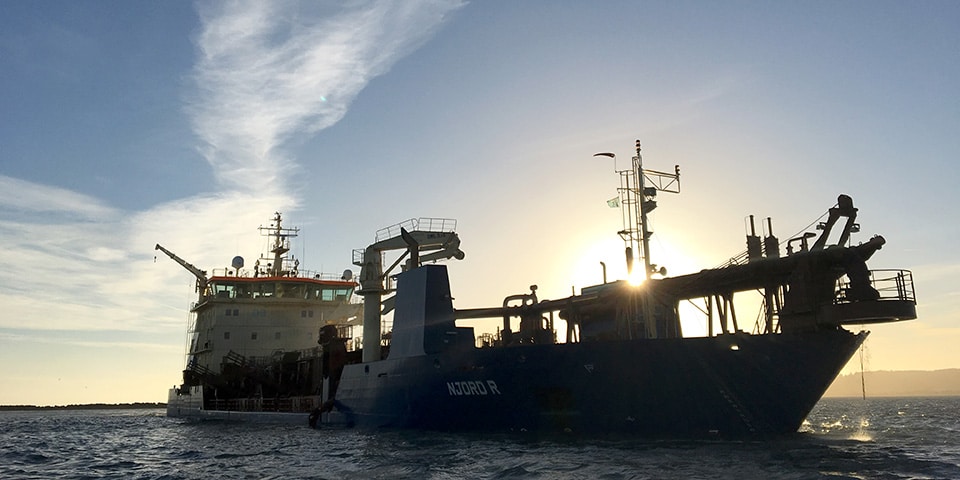
From advocacy to knowledge sharing
Worldwide, our small country is well on the map when it comes to hydraulic engineering. We have a long history and impressive expertise in the field of work in and around water. The Association of Hydraulic Engineers represents the interests of its 94-plus members, in the role of employer and business association for contractors and service providers in hydraulic engineering.
The Association of Hydraulic Engineers works towards a vital hydraulic engineering sector, by sharing knowledge and organizing activities. And, not unimportantly, by drawing attention to the beautiful profession of hydraulic engineering. We speak with Edwin Lokkerbol, director of the Association of Hydraulic Engineers, about current challenges and the future of the sector.
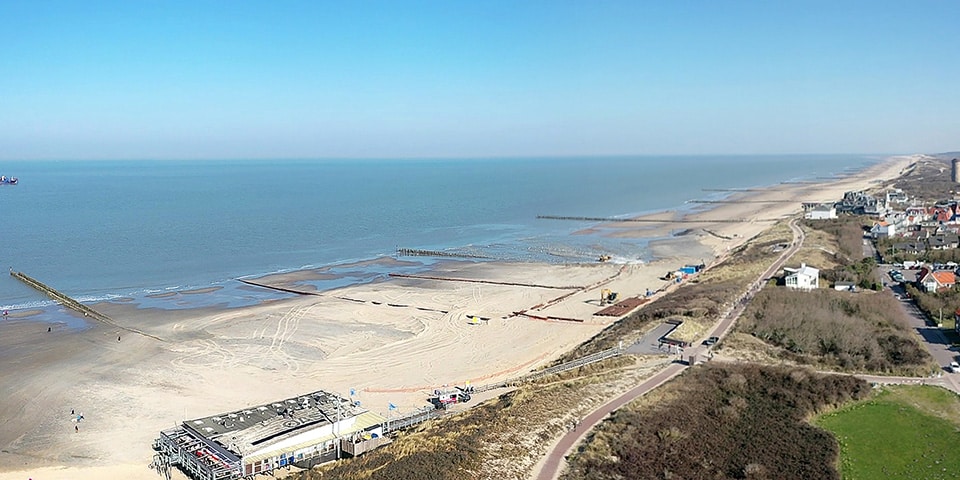
The Association of Hydraulic Engineers likes to show what working in hydraulic engineering means today. (Image: Rohde Nielsen, near Domburg)
Developing a long-term vision
"The Association of Hydraulic Engineers is committed to the labor market, to the public and to politics. We do everything we can to think along in ensuring a sustainable future," Lokkerbol opens the conversation. "With the current issues in the Netherlands of a rising water table and falling soil, it is not easy to look ahead. Investing in water safety and doing so in a sustainable way requires a long-term vision. That is why it is good that the Association of Hydraulic Engineers combines so much expertise. We look at all kinds of issues relating to sustainability, in relation to our sector. For example, we are working on the question of what the fuel of the future should be. We discuss it openly and share the knowledge we possess, with all parties who are interested in the discussion."
Lokkerbol is pleased with the central government's Delta Program 2020. "Peter Glas, the new Delta Commissioner, says that 'Climate-adaptive and water-robust construction and development should be the new "normal."' This is a good example that we as the Association of Hydraulic Engineers wholeheartedly underline. Much needed also for the energy transition. The Delta Program 2020 works with a long-term vision towards 2050, the Netherlands must then be as climate-proof and water-robust as possible."
Predictive work can now be done
"We already depend on technology for our safety. By analyzing generated data coming from technology and linking the outcomes, we can now even do predictive work," Lokkerbol continued. "Our members deal with dredging, coastal and shoreline works and structural hydraulic engineering, among others. The deployment of sensors on machines and structures, which are linked via Internet of Things to umbrella systems, means that we can have data that tells us what the status is at that moment. An example: by equipping quay walls with sensors that can measure the load on the quay wall, we are able to calculate how long such a quay wall will last under the conditions. In order to do responsible maintenance, we need data."
Pleased to meet you!
Hydraulic engineering is also facing a tight labor market. It is difficult to get staff. "Too few young people choose it. Unknown makes unloved, however, we think. Because once you work in hydraulic engineering, you stay for a long time. That is why it is important to make our sector visible. We like to show what working in hydraulic engineering entails. That we have our own collective labor agreement and our own development fund. We do an enormous amount of education, we award a prize for the best HBO/WO thesis in the field of hydraulic engineering," explains Lokkerbol.
To reach young people, the Association of Hydraulic Engineers also organizes events. "Low-threshold meetings, to get as many young people as possible to attend. These are occasions where we can properly demonstrate that in our industry you sometimes have to get your hands dirty, but you can just as easily get involved with business or complex technological issues. One of our members in the dredging industry has more than 100 employees. Due to the increasing demand for design and construction drawings, this company now has its own design department, which employs people with HBO and WO backgrounds."
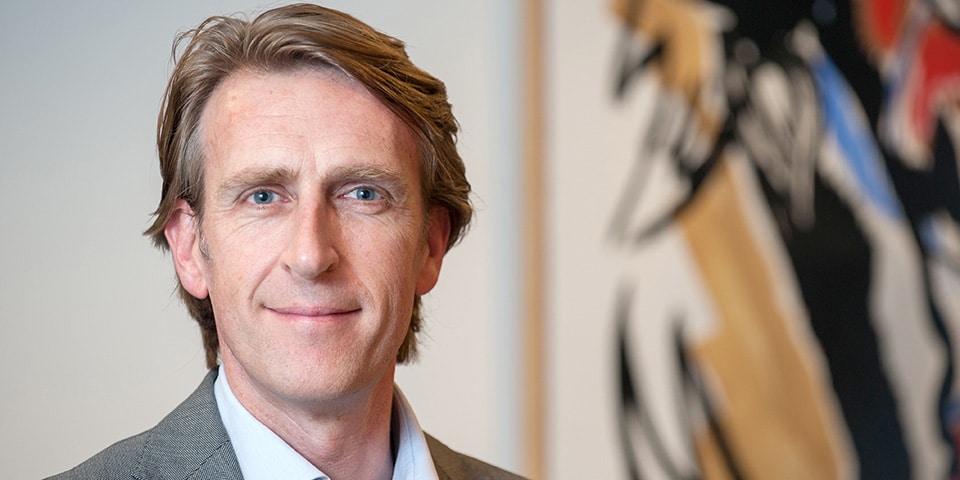
Edwin Lokkerbol, director of the Association of Hydraulic Engineers.
Being properly trained is half the battle
Good workers are also needed on dredgers, of course. "A profession in itself. Through a maritime education you can be trained to work in the sector. In Rotterdam and on Terschelling are the maritime courses that deal specifically with the realization of hydraulic engineering projects," Lokkerbol said.
What about the entry of women into hydraulic engineering? "There is increasing recruitment, fortunately. A good example is provided by Ruth Huisman-De Graaf, one of the board members of De Klerk Werkendam. She is president of the Young Hydraulic Engineers. There are two ladies on the five-member board."
